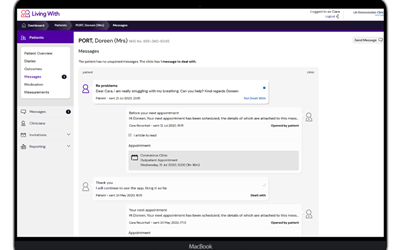As countries around the world struggled to cope and recover from successive waves of the COVID-19 pandemic, a major new research consortium was formed to inform medium- and longer-term policy and health system responses. The consortium was made up of more than 30 researchers, health professionals, patients, and industry partners from over 30 organisations who worked together under the banner of STIMULATE-ICP (Symptoms, Trajectory, Inequalities and Management: Understanding Long COVID to Address and Transform Existing Integrated Care Pathways). The overall programme aimed to work out what long COVID is, how to diagnose it, and how to manage it. The team interviewed patients and health professionals and analysed data from NHS records to inform understanding of patterns of long COVID and the outcomes of current clinical practice. Researchers worked alongside patients to improve access to care and support, and to address care inequalities.
The team recruited 4,500 patients in the largest long-COVID trial to-date in order to compare a new pathway including community-based, comprehensive MRI scan (CoverscanTM) and enhanced rehabilitation (Living with COVID RecoveryTM) with usual care. The effect of drugs on patient outcomes after three months of treatment was trialled. The drugs that were tester were: Famotidine and Loratidine (antihistamines) in combination, Rivaroxaban (an anti-clotting drug) and Colchicine (an anti-inflammatory drug). With patients the team co-developed means that improved patient access to the right care at the right time in the right place, including health professional training. The aspects of long COVID care which might have improved care for patients with multimorbidity and long-term condition will also be considered.
The programme, delivered knowledge to clinicians and scientists, evidence to policymakers and improved care to patients, while collecting real-world data at scale.
Find out more about the STIMULATE-ICP project and how to get involved.

 START DATE AND DURATION: August 2021 - March 2025
START DATE AND DURATION: August 2021 - March 2025
 Websites
Websites


